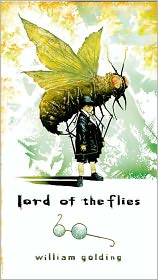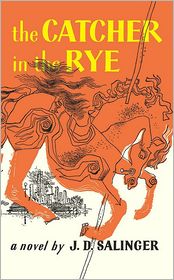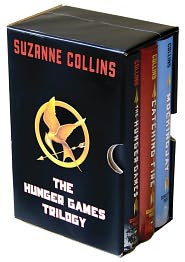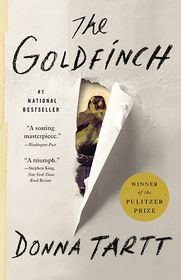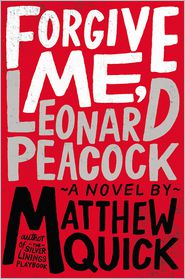6 Books in Which the Parents are MIA
Parents complicate things. They force you to change clothes, insist you come home before curfew, and demand to meet the people you’re heading out with for the evening. In other words, it’s hard to have adventures, fight crime, start a revolution against a dystopian government, or go on a killing spree when your parents are involved.
And writers know this, which is why they frequently delete parents from stories that involve characters who are really too young to be gallivanting about falling in love, blowing things up, or discovering they’re The One destined to save the universe. The fact is, many novels with young main characters have either missing or absent parents, or parental characters who are so ineffective they might as well not be there in the first place. Here are six novels proving that when it comes to stories about kids, parents just get in the way.
Lord of the Flies
Lord of the Flies
By
William Golding
Afterword
Lois Lowry
Contribution by
Jennifer Buehler
In Stock Online
Paperback $12.00
Lord of the Flies, by William Golding
While it isn’t the first novel about kids to feature no parents, it is the most horrifying, as it takes the concept to its most extreme conclusion. This book’s entire world is devoid of adult influence after a shipwreck in which the only survivors are kids, who find themselves on a deserted, uncharted island. That the children quickly devolve into savages, their existence defined by violence, bullying, and other terrifying behavior, is likely no surprise to anyone who has ever been to a children’s birthday party, and this classic remains the gold standard when it comes to stories about a world free of adult influence.
Lord of the Flies, by William Golding
While it isn’t the first novel about kids to feature no parents, it is the most horrifying, as it takes the concept to its most extreme conclusion. This book’s entire world is devoid of adult influence after a shipwreck in which the only survivors are kids, who find themselves on a deserted, uncharted island. That the children quickly devolve into savages, their existence defined by violence, bullying, and other terrifying behavior, is likely no surprise to anyone who has ever been to a children’s birthday party, and this classic remains the gold standard when it comes to stories about a world free of adult influence.
The Catcher in the Rye
The Catcher in the Rye
In Stock Online
Paperback $9.99
Catcher in the Rye, by J.D. Salinger
The original modern story of a teenager who has agency because his parents are nowhere to be found, Salinger’s classic novel creates the template followed by so many modern novels about kids: teenage protagonist simply ignores the existence of his parents and heads off into the evening to have an adventure. Writers have been using this template ever since, to varying degrees of success, to explore what happens when a kid tries to live an adult life without the requisite experience and emotional maturity. For Salinger’s Holden Caulfield, the experience leads to a breakdown and institutionalization, but even in subsequent novels where kids head out into the evening without parental supervision and manage to survive (and even thrive), the key remains locking the parents up somewhere for the duration.
Catcher in the Rye, by J.D. Salinger
The original modern story of a teenager who has agency because his parents are nowhere to be found, Salinger’s classic novel creates the template followed by so many modern novels about kids: teenage protagonist simply ignores the existence of his parents and heads off into the evening to have an adventure. Writers have been using this template ever since, to varying degrees of success, to explore what happens when a kid tries to live an adult life without the requisite experience and emotional maturity. For Salinger’s Holden Caulfield, the experience leads to a breakdown and institutionalization, but even in subsequent novels where kids head out into the evening without parental supervision and manage to survive (and even thrive), the key remains locking the parents up somewhere for the duration.
Harry Potter Paperback Boxed Set, Books 1-7
Harry Potter Paperback Boxed Set, Books 1-7
In Stock Online
Paperback
$80.00
$100.00
The Harry Potter series, by J.K. Rowling
Absent parents aren’t just a feature of gloomy stories involving emotional breakdowns, savage children, and a bleak worldview. In modern times even the most successful novels in the world have found it necessary to delete some parents. While there are parents (and parental figures) in Harry Potter, most of the adventures focus on main characters Harry, Hermione, and Ron acting on their own. If Harry’s parents were alive, or if Hermione’s weren’t Muggles, the struggle against Voldemort would likely fall to them instead of their kids. In order for Harry and his friends to be the center of the story, the adults have to be useless—or altogether missing.
The Harry Potter series, by J.K. Rowling
Absent parents aren’t just a feature of gloomy stories involving emotional breakdowns, savage children, and a bleak worldview. In modern times even the most successful novels in the world have found it necessary to delete some parents. While there are parents (and parental figures) in Harry Potter, most of the adventures focus on main characters Harry, Hermione, and Ron acting on their own. If Harry’s parents were alive, or if Hermione’s weren’t Muggles, the struggle against Voldemort would likely fall to them instead of their kids. In order for Harry and his friends to be the center of the story, the adults have to be useless—or altogether missing.
The Hunger Games Trilogy Boxset
The Hunger Games Trilogy Boxset
Other Format $53.97
The Hunger Games, by Suzanne Collins
In modern times, parents are often not only absent, but also somewhat villainous. At first glance you might be tempted to point out that Mrs. Everdeen is certainly present in Collins’ incredibly popular novels. Mr. Everdeen isn’t, but Katniss’ mother plays a role throughout the trilogy. It’s a tiny role, however, and in the first installment it’s made very clear Mrs. Everdeen is not the most effective or present parent in the world. In fact, she’s so useless Katniss is the one who holds the Everdeen family together, at least until she offers herself as Tribute and plunges into a world where the adults are only present outside the arena, pulling strings and setting traps the children must navigate alone.
The Hunger Games, by Suzanne Collins
In modern times, parents are often not only absent, but also somewhat villainous. At first glance you might be tempted to point out that Mrs. Everdeen is certainly present in Collins’ incredibly popular novels. Mr. Everdeen isn’t, but Katniss’ mother plays a role throughout the trilogy. It’s a tiny role, however, and in the first installment it’s made very clear Mrs. Everdeen is not the most effective or present parent in the world. In fact, she’s so useless Katniss is the one who holds the Everdeen family together, at least until she offers herself as Tribute and plunges into a world where the adults are only present outside the arena, pulling strings and setting traps the children must navigate alone.
The Goldfinch (Pulitzer Prize Winner)
The Goldfinch (Pulitzer Prize Winner)
By Donna Tartt
In Stock Online
Paperback $22.99
The Goldfinch, by Donna Tartt
Even Pulitzer Prize–winning literary novels often find it necessary to delete parents in order to give their young main characters enough agency to navigate their stories. In The Goldfinch Donna Tartt uses Theo’s mother’s death as the instigating incident that sets his whole life in motion, and later makes his father such an absentee parent Theo actually has more adult supervision and influence after his father’s death. The middle section of the novel is set in an adult-free bubble in Las Vegas that feels almost dystopian in its complete lack of parental figures, allowing Tartt the space to let Theo define himself, for good and ill.
The Goldfinch, by Donna Tartt
Even Pulitzer Prize–winning literary novels often find it necessary to delete parents in order to give their young main characters enough agency to navigate their stories. In The Goldfinch Donna Tartt uses Theo’s mother’s death as the instigating incident that sets his whole life in motion, and later makes his father such an absentee parent Theo actually has more adult supervision and influence after his father’s death. The middle section of the novel is set in an adult-free bubble in Las Vegas that feels almost dystopian in its complete lack of parental figures, allowing Tartt the space to let Theo define himself, for good and ill.
Forgive Me, Leonard Peacock
Forgive Me, Leonard Peacock
In Stock Online
Paperback $11.99
Forgive Me, Leonard Peacock, by Matthew Quick
Sometimes absent parents are simply plot necessities. Matthew Quick’s 2013 novel about a boy who brings a gun to school intending to kill himself and his former best friend is powerful and riveting owing to Quick’s mastery of Leonard’s voice. A troubled mind, Leonard restlessly loops through his reasoning as he delivers presents to the few people he respects and makes his way through what he expects to be his final day, deserted by his burnout father and barely remembered by his self-obsessed mother. With just one parent paying attention, the tragedy of Leonard’s life might have been avoided or at least reduced—but that would have made for a very different, and likely much shorter, novel.
Shop all fiction >
Forgive Me, Leonard Peacock, by Matthew Quick
Sometimes absent parents are simply plot necessities. Matthew Quick’s 2013 novel about a boy who brings a gun to school intending to kill himself and his former best friend is powerful and riveting owing to Quick’s mastery of Leonard’s voice. A troubled mind, Leonard restlessly loops through his reasoning as he delivers presents to the few people he respects and makes his way through what he expects to be his final day, deserted by his burnout father and barely remembered by his self-obsessed mother. With just one parent paying attention, the tragedy of Leonard’s life might have been avoided or at least reduced—but that would have made for a very different, and likely much shorter, novel.
Shop all fiction >
